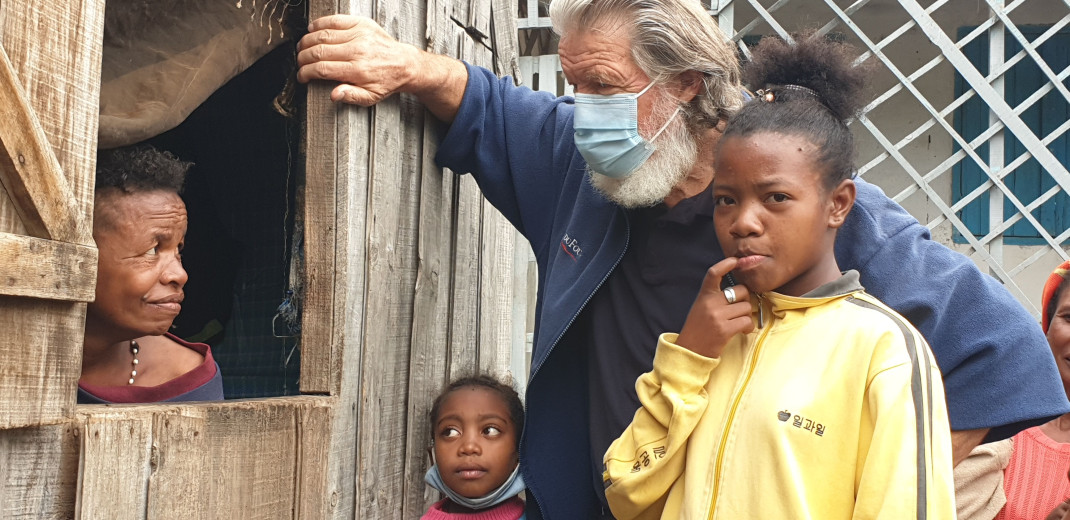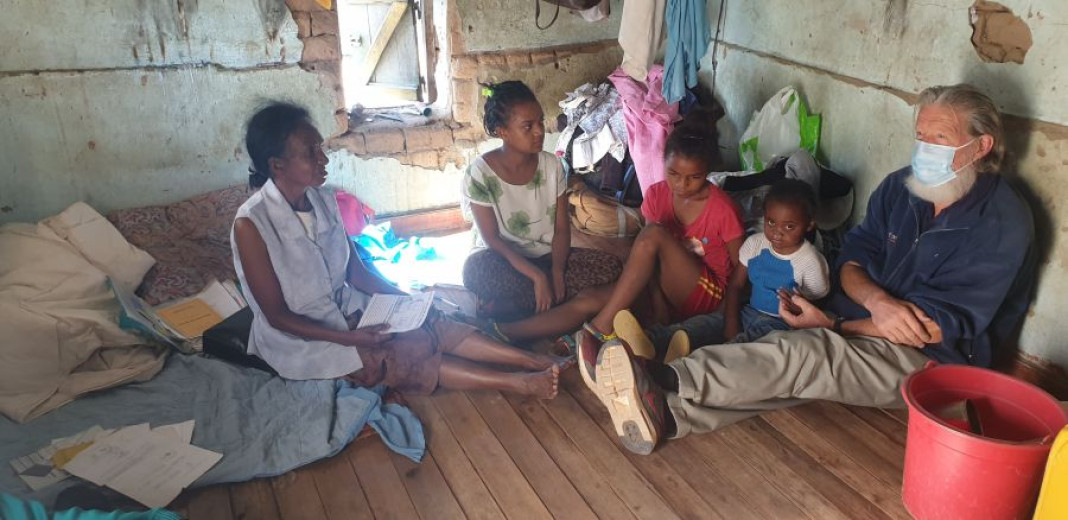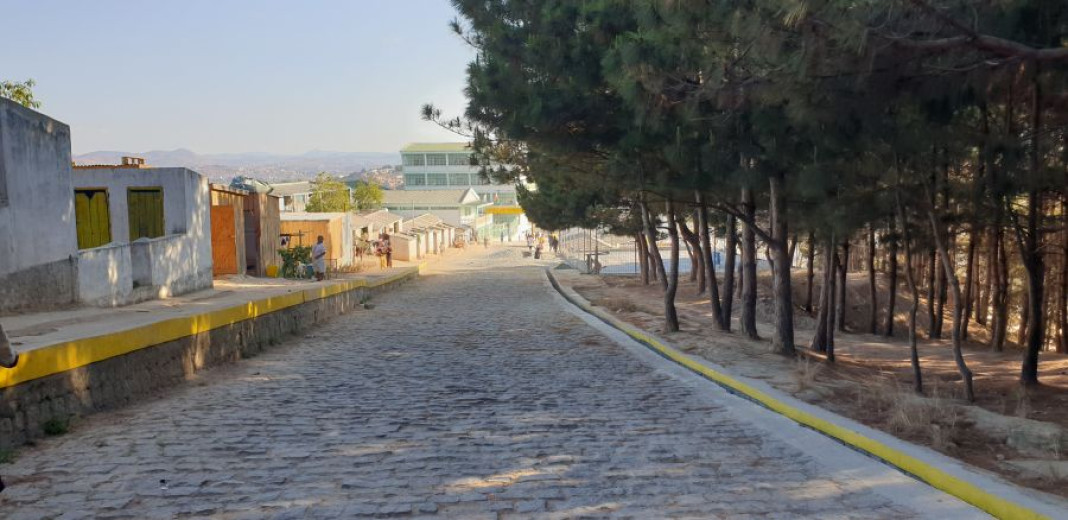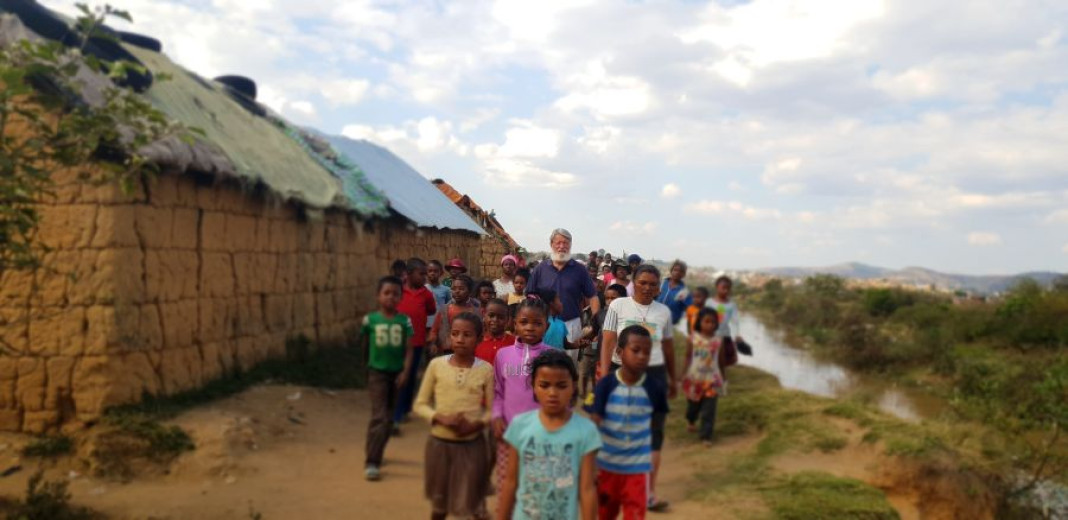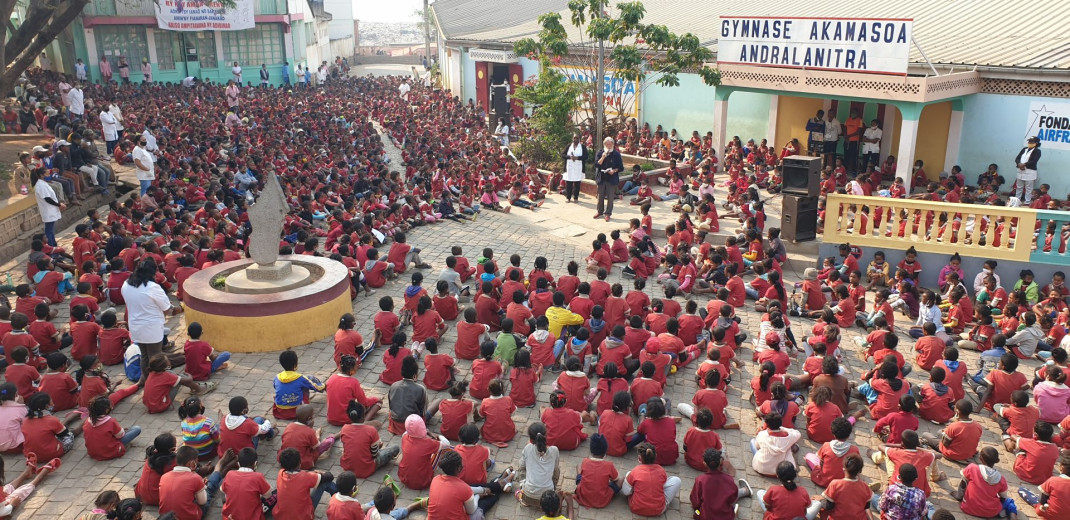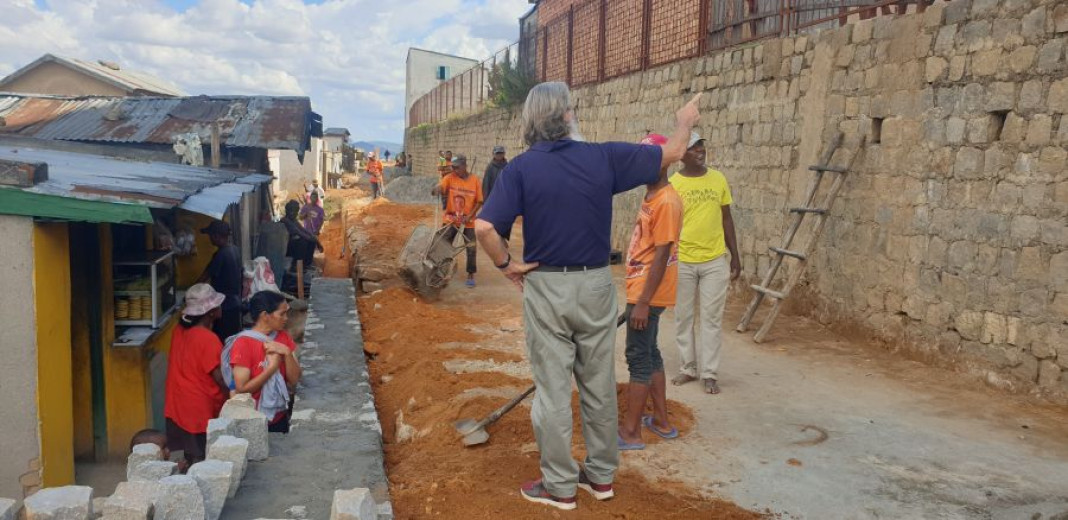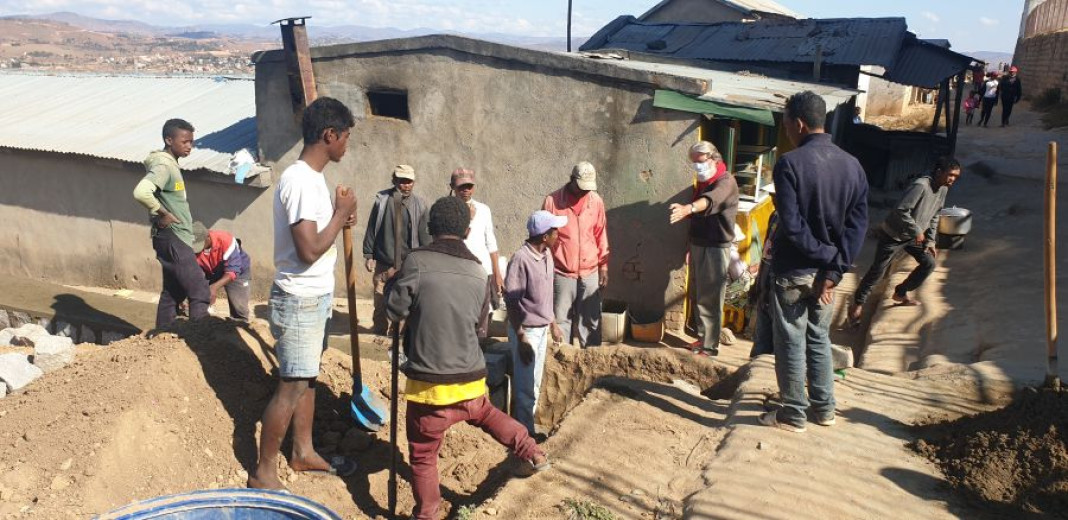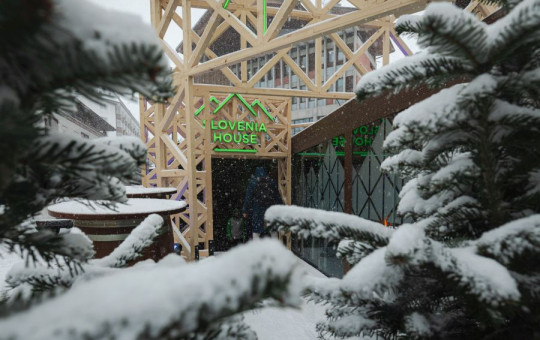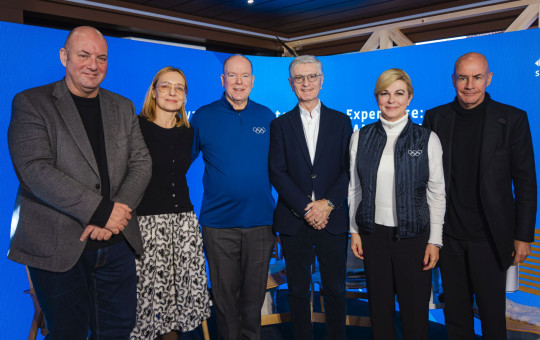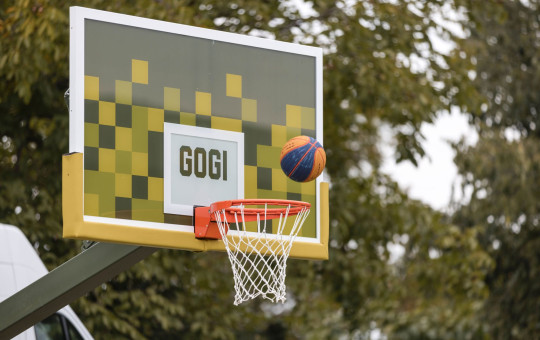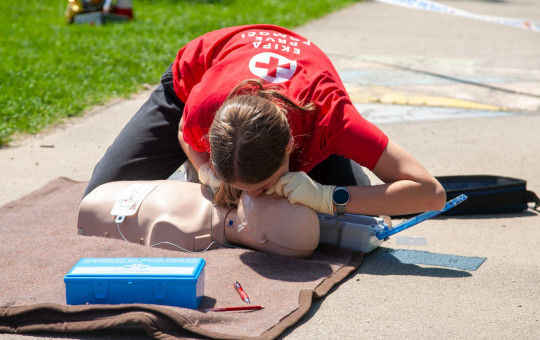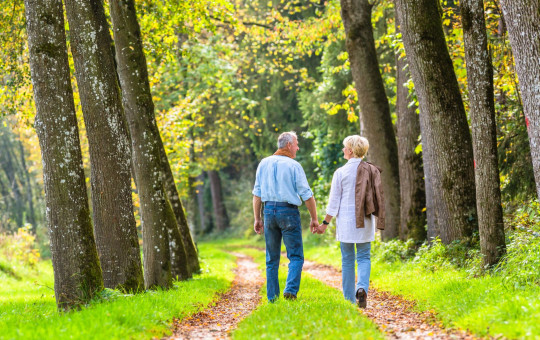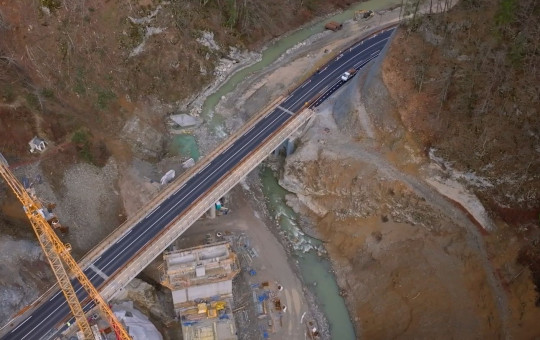Date: 7. December 2023
Time to read: 2 min
Peter Opeka was born in 1948 in Buenos Aires to parents of Slovenian origin. The family left Slovenia after the tragic events at the end of the Second World War. He has worked as a missionary for a long time in Madagascar, where he has been helping the very poorest people for 34 years. His mission is one of love and compassion. He was nominated several times for the Nobel Peace Prize.
Regarding nominations for Nobel Peace Prizes Pedro Opeka explains : “This is a great boost to our humanitarian work for the dignity of each person. At the same time it signals that the most wretched among us are not forgotten, and is a recognition of the work among garbage dump dwellers. I do not regard this as a personal recognition, but as a recognition of working together in solidarity.”
He was born in Argentina
He was born in Argentina to Slovenian parents. There were eight brothers in the family, and things were always lively. “There was respect and affection among us, and we also knew how to forgive each other.”
Although they loved their original homeland, they also grew to love their new home. Today Pedro Opeka still nurtures an enthusiasm for football, the national sport in Argentina.
He began his education in Argentina, then continued his studies in Slovenia and France. “Argentina taught me that life is a celebration, and joy brings us together and connects us, for we are all brothers and sisters. In Slovenia I developed a strong work ethic, I learned honesty, consistency and reliability. In France I became familiar with critical thinking and the value of deep reflection. And Madagascar taught me patience in difficult moments, and deepened by belief in God’s love.”
Pedro took his first steps on Slovenian soil in 1968, when he enrolled in the Faculty of Theology in Ljubljana. “I love going back to Slovenia, to visit relatives and friends. Slovenia is a beautiful country, and the Slovenian nation has powerful religious roots and a rich history and culture.”
Life at the Akamasoa “good friends” mission
His resolve to work in a mission blossomed at an early age, in the form of a wish in his heart to be of help. “Even as a child I was maddened when I saw how injustices were done to poor families.”
“When I came to Madagascar, I felt as though I had been born again, since I had to learn everything all over again. A new language, new culture, new customs, climate and environment. Meeting and socialising with people made me very happy. I adopted a humble life, working as a builder in the construction of schools and other buildings, and as a labourer in the rice fields. When they saw that I was working together with them, as one of them, they accepted me as an equal. We were also brought together by sport, especially football. When you score a goal, the whole team celebrates. We all jumped on top of each other, and along with trust, the foundation of our life together grew stronger.”
Pedro Opeka worked in the first mission for 15 years. Then, as he does today at Akamasoa – which in Malagasy means “good friends” – he got up at 5 am, beginning the day with prayer and then responding to letters. The working day begins at 7 am.
That is when the other co-workers arrive, and at a meeting they find ways to organise education, healthcare, work in the quarry, construction of housing, security, problems with drinking water and so on. “Our aim is to respond to the hardships people are experiencing. An important goal for us is to help people realise that poverty is not a fate, but something that can be overcome through their own effort and mutual support. Each person – child, woman and man – has the right to respect and dignity, and has the right to demand this from those in authority.”
The ability to make decisions in critical moments, as well as strength and courage, come to this Slovenian missionary through prayer. “It links me to the Creator, who is love. It gives me strength and peace, spiritual balance, and helps me understand and forgive others. Prayer is life in love, it is compassion towards your brothers and sisters, it is sharing bread with the hungry, and living with others in danger. I pray because I am part of God’s people and I cannot come to God if I do not love and help those close to me. And all my co-workers and neighbours are my brothers and sisters. Without prayer I might not be able to keep going in my work, because I would feel isolated. But my co-workers stand by my side and together we fight poverty. I am infuriated when I see people’s greed and indifference.”
-
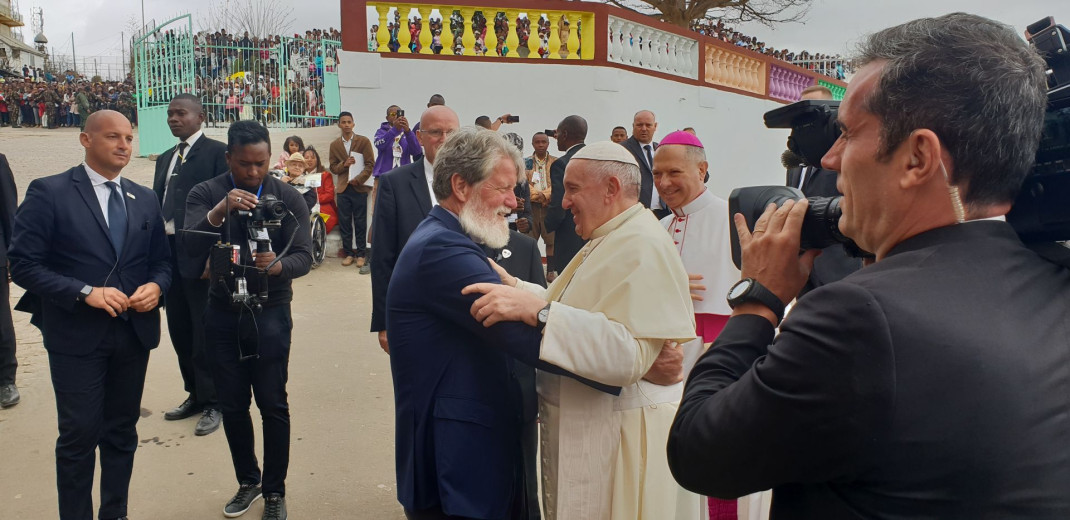 Pope Francis visited the Akamasoa City of Friendship in 2019. Photo: personal archives
Pope Francis visited the Akamasoa City of Friendship in 2019. Photo: personal archives
-
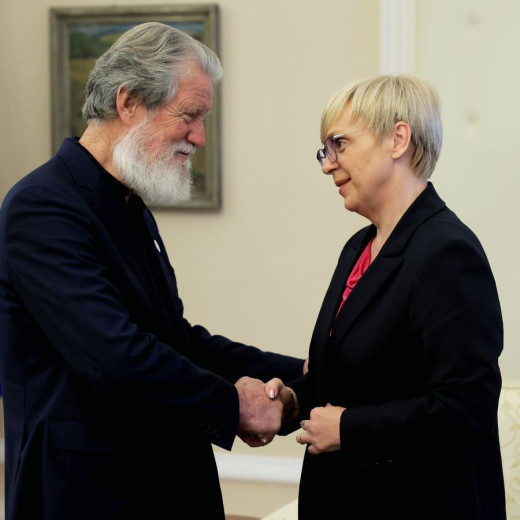 Pedro Opeka with President of the Republic of Slovenia Nataša Pirc Musar in December 2023. Photo: Daniel Novakovič/STA
Pedro Opeka with President of the Republic of Slovenia Nataša Pirc Musar in December 2023. Photo: Daniel Novakovič/STA
-
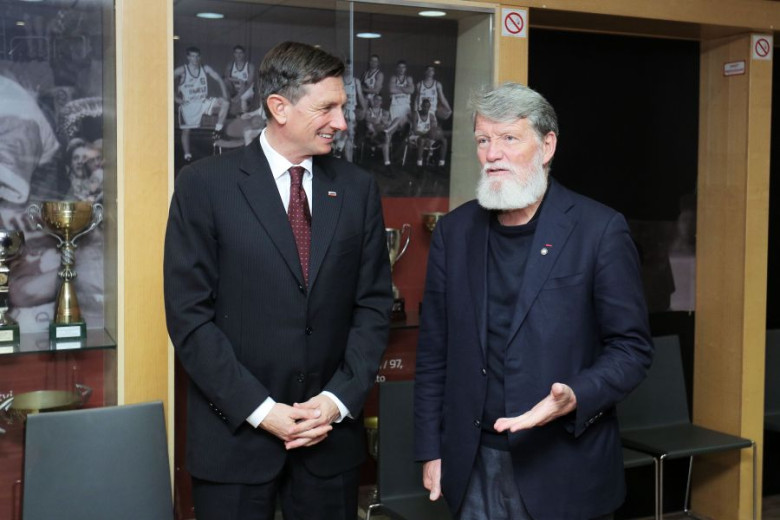 Pedro Opeka with the President of the Republic of Slovenia in 2015. Photo: Daniel Novakovič/STA
Pedro Opeka with the President of the Republic of Slovenia in 2015. Photo: Daniel Novakovič/STA
Pedro points out that Slovenians are people who like to offer help. “Almost every year, actions were organised to help missionaries.”
For Pedro, hope is a daily struggle. “Joy and hope are the identity cards that serve as the building blocks for love and a new beginning. If in our town there are so many children playing and full of joy, it’s because in their younger years they got this opportunity at the Akamasoa Association. ”
Joy in one’s heart
“African children live with a smile on their faces, which can be hard to explain, since they live in deprivation, practically without any toys. But since they live in a community, with the values of community – connection, respect, help for one another – this imbues them with joy. If the reason for joy were wealth, and the number of toys you have, then children who have all that should be happy. But often they are not, because the greed of their parents means they are alone, neglected, and ignored in favour of the interests of their parents and those close to them. No one can be happy when they are on their own and lonely. People who live in big, luxurious buildings do not know each other, and at work they hide behind the closed doors of their offices. The point of our existence lies in seeking a balance between individual and common life.”
In connection with this the missionary once again remembers his parents: “I learned to build a house when I was ten years old. I am grateful to my mother and father for teaching and encouraging me to work and to respect work and people, for this gave me the knowledge of how to coexist in a large family.”
“Sunday mass is also a celebration. Around 10,000 of us gather together and we listen to God’s word. The Eucharist is not just a ritual, but an experiencing of God’s love for each one of us. The Eucharist is not just a matter for the priests, it is a celebration of God’s people. We cannot praise God if we see a hungry person outside the door. We all dance, cheer and clap for joy. The African children tell their parents on Sunday that they are going to a celebration, to the prayer place.”
And what is your message?
“In my sermons I touch on life in the village, our common work, sports, school and also politics and the world economy. And I always give specific examples. Often I also ask other people to speak, so the sermon becomes a conversation among us. I want the sermon to be a sincere uplifting of the spirit that brings hope and joy.”

